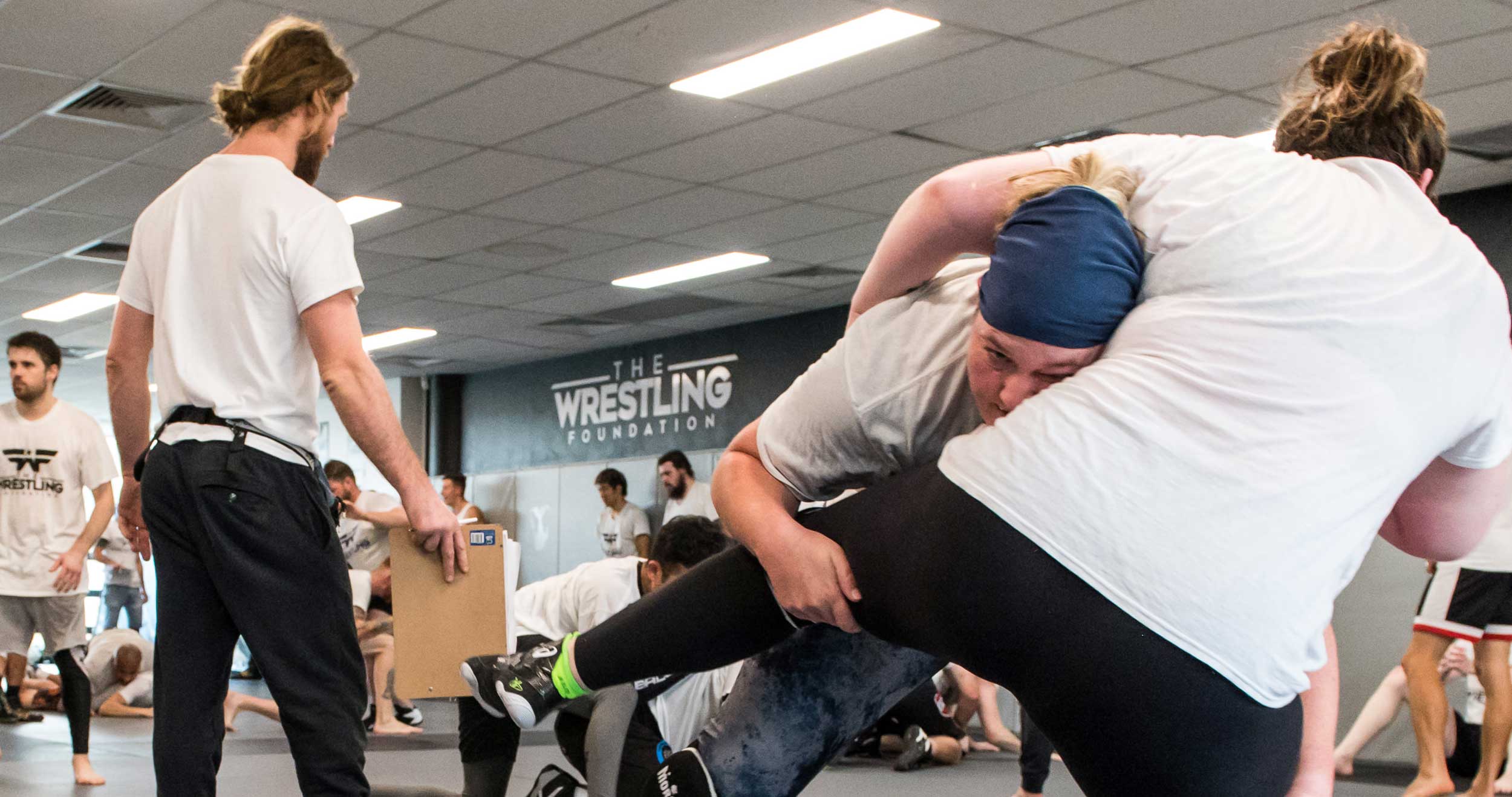What We Do

The Foundations of Wrestling
The Wrestling Foundation has built a systematic approach to learning the art of folkstyle wrestling that gives a step-by-step model to students and coaches and allows them to develop skills in folkstyle wrestling. We do this by having a strong team culture that is constantly building and allows our members and clubs to give back to the successful growth of folkstyle wrestling in Australia.
Part of that includes a grading system and coaching accreditation course developed over 15 years of teaching wrestling in Australia and discovering what works and what doesn't. Through a trial and error process, The Wrestling Foundation learned why the global sport of wrestling had not reached its full potential in Australia.
We have now concentrated this process into a format that allows students and coaches alike to benefit from our experience and help build and grow together as a team to help wrestling reach the heights it is capable of achieving. You can't build a skyscraper properly without laying a solid foundation, and The Wrestling Foundation sees being part of a team as one of the keys to wrestling growth.
We currently have 10 different affiliates and growing who have joined the team. To encourage the team sport aspect, we run team dual tournament formats that allow our wrestlers to compete together as a team that is not seen in other grappling styles.
American Folkstyle Wrestling
Folkstyle, or collegiate wrestling is widely practised throughout the United States of America. This style of wrestling is a collaboration of Greco-Roman, Freestyle and Judo. The Wrestling Foundation focuses on the fundamentals of folkstyle wrestling which includes stance positioning, establishing dominant control, and learning escapes and reversals.
We continuously drill positions and moves in the practice room so they become automatic in a live wrestling situation/competition. There is an emphasis on conditioning, for explosive movement and stamina.
Wrestling is not only a sport but also an effective form of self-defence. Individuals learn how to control their opponent without the use of punching, kicking or submissions. Instead, wrestling uses offence, defence, and timing, to execute manoeuvres.
Head Coach Gary Jones
Gary began wrestling at the age of 8 years old for Stafford Wrestling Club, which was founded and established by his father Steve Jones. Stafford Wrestling Club has seen over 50-75 kids participate on an annual basis since the late 80s. This is where Gary learned and cultivated his love and passion for the sport. By the age of 12, Gary had competed in over 64 tournaments and wrestled over 250 matches. From 13 to 18 years, Gary began perfecting his technique and built on the foundations he had learned at the club level. While wrestling at Southern Regional High School he represented his school for 6 consecutive years winning over 125 varsity matches and was 3 time district champion, region champion and 2 time state top 12 finisher. As a team they continuously placed in the top 10, out of 350 plus teams, for the state of New Jersey.
After a successful High School Wrestling Career, Gary continued his passion for wrestling for a Div III Powerhouse at the College of New Jersey. Wrestling under David Isenhower, one of Americas most winningest coaches of any sport at the NCAA level, Gary learned how to be part of a wrestling program and competed at the highest level in the USA. While wrestling at the College of New Jersey, Gary placed top 8 in the nation and helped his team to a top 10 placing 4 years in a row.
Gary’s competitive career turned to teaching/coaching wrestling at a high school level in the USA before moving to Australia and coaching in Sydney gyms for the past 4 years including Langes MMA, VT1 Academy, and the UFC gym in Alexandria where he has coached some of Australia's top grapplers, MMA and UFC fighters.
Gary’s competitive experience and coaching knowledge places him in the elite of wrestling coaches here in Australia, but what sets him apart is his passion and drive to cultivate a wrestling culture in the community and nation.
